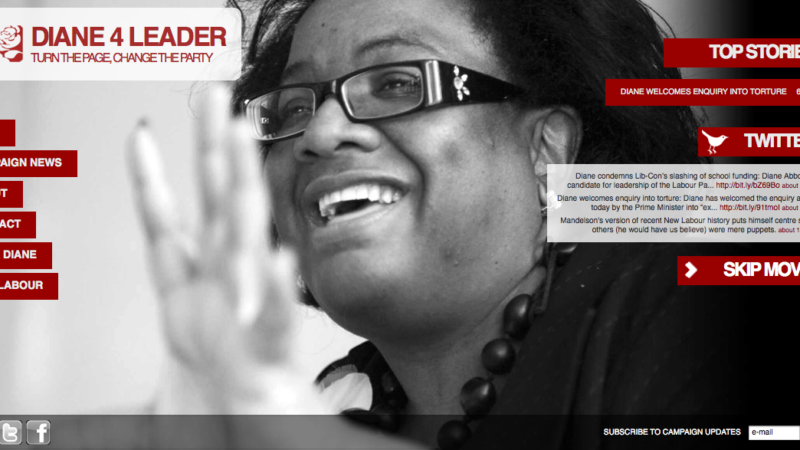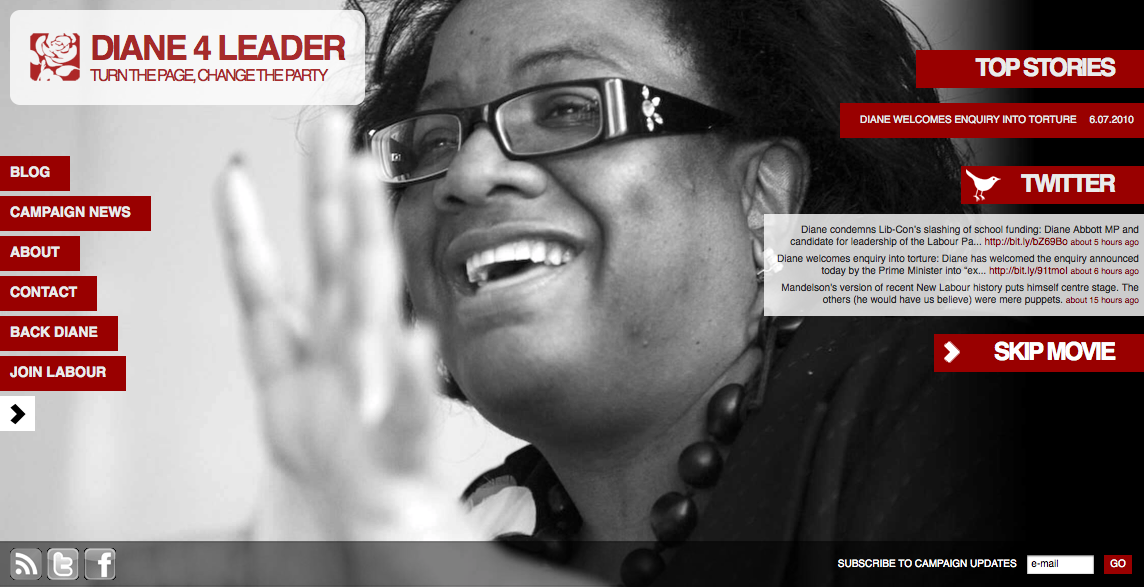Some thoughts on the Diane Abbott – David Miliband leadership result

 Political Betting has raised the issue of whether David Miliband’s decision to get Diane Abbott onto the ballot paper in the end costed him the leadership. The line is that Abbott being on the ballot motivated more on the left of the party and affiliated organisations to cast their ballots, and votes from Abbott redistributed to Ed Miliband rather than David*.
Political Betting has raised the issue of whether David Miliband’s decision to get Diane Abbott onto the ballot paper in the end costed him the leadership. The line is that Abbott being on the ballot motivated more on the left of the party and affiliated organisations to cast their ballots, and votes from Abbott redistributed to Ed Miliband rather than David*.
If you take the numbers in exclusion from the entire 4 months of the election process then the Political Betting point might hold true.
But it’s not just about numbers.
Abbott’s presence on the ballot allowed all candidates the space to focus on policy issues during the campaign – to talk about the economy, jobs, the environment, housing etc. Had Abbott not been on the ballot then much of the discussion would have been about the lack of diversity in the Labour Party as all the candidates would have been forty-something white males without her on the ballot.
Whether a policy focus, rather than a (lack of) diversity focus was to the benefit of Ed or David I cannot judge, but for the sake of the future of the Labour Party and the future representation of women and ethnic minorities, Diane’s place on the ballot paper was vital, and David deserves credit for having allowed that to happen.
* – for the record I voted Abbott, Miliband D, Miliband E, Balls, Burnham
Certainly some of the discussion would have been about the lack of diversity, but not sure that I would say her presence necessarily unlocked the space for this in such a significant way…
I do however think that her presence was extremely valuable not just for the reasons mentioned above, but because of her direct impact on policy debates – in particular her intervention on the immigration debate.
Encouraged by commentators on the left (see David Goodhart ‘Labour must become the anti-immigration party’) the emerging view encapsulated by Balls was that a. Labour needed to reconnect with the the working class, b.a key reason it lost contact was because of the expansion of immigration. c. it got immigration wrong (in particular opening up the labour market to East Europeans), d. it needed to address this by restricting it (see for example the Balls interview on this in the past).
Abbott on the other hand didn’t stoop to scapegoating immigrants, and instead argued right at the outset that immigration is a proxy for a range of concerns about lack of affordable housing, labour market insecurity etc. My feeling is that her intervention significantly moderated the tone of the worrying chorus that had started to emerge on the immigration debate itself and its relationship to the loss of core labour voters.
The Ed Miliband formulation set out in his speech as I understand it (though others disagree) appears to be a more progressive formulation than than some. Yes, there is some questionable rhetoric about immigration, but the answer lies in labour market regulation so that the native workforce are not undercut in wages (I should say that academic research on the impact of wages is varied but it’s of course a potentially valid concern). That formulation is a reasonable one which addresses potential impacts of immigration and the exploitation of migrant labour.